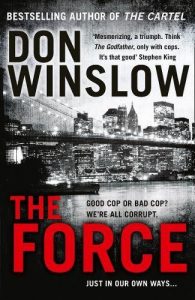Published by HarperCollins UK, Wm Morrow US
The Marsh King’s Daughter by Karen Dionne
Published by Sphere UK, Putnam US
Siracusa by Delia Ephron
Published by Point Blank UK, Blue Rider US
Persons Unknown by Susie Steiner
Published by Borough Press UK, Random House US
Lost Girls by Angela Marsons
Published by Bonnier Zaffre
I have been a fan of Don Winslow’s novels since California Fire and 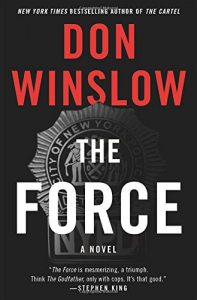 Life (1999), particularly admiring the way he gets into his characters’ heads and lives, as well as his superb ear for their particular idiom. Now, in The Force, he has surpassed himself. This is an account of a NYPD sergeant, Dennis Malone, as he tries to take down bad guys of every description. Competing gangs fight over the biggest drug deals and arms shipments, while his own team bend the rules every which
Life (1999), particularly admiring the way he gets into his characters’ heads and lives, as well as his superb ear for their particular idiom. Now, in The Force, he has surpassed himself. This is an account of a NYPD sergeant, Dennis Malone, as he tries to take down bad guys of every description. Competing gangs fight over the biggest drug deals and arms shipments, while his own team bend the rules every which 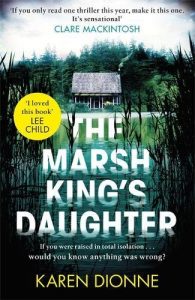 way as they try to keep the law-abiding safe, dreading the appearance of the IAB or the Feds, for ever on the hunt for dirty cops. Winslow shows why so few police officers manage to keep their marriages alive, contrasting the hellish excitement and terror of the streets with the equally hellish tedium of suburban barbecues and domestic complaints about
way as they try to keep the law-abiding safe, dreading the appearance of the IAB or the Feds, for ever on the hunt for dirty cops. Winslow shows why so few police officers manage to keep their marriages alive, contrasting the hellish excitement and terror of the streets with the equally hellish tedium of suburban barbecues and domestic complaints about 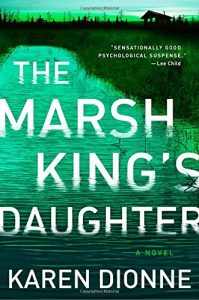 silence, lateness, and a refusal to ‘share’.
silence, lateness, and a refusal to ‘share’.
Winslow also shows corruption at every level of public life. He writes, ‘The defense bar knows – shit, everyone knows – which cases they can buy. One of the most lucrative judicial posts is on the scheduling docket; for the right money you can pay to have a case assigned to the judge you’ve already purchased. Or rented, anyway.’ Winslow’s narrative smacks of so much convincing realism that it is going to be hard to read any news about the city of New York without suspicion. This is a huge novel, at once exciting, shocking, moving, rage-inducing and tragic. Crime writing doesn’t get any better than this. Don Winslow is my  hero.
hero.
But he’s not the only terrific novelist with a book out this month. Karen Dionne has written another powerful, though very different, novel in The Marsh King’s Daughter. The title made me think this might stray into feyness, but the fairy story that provides it has nothing to do with gossamer wings or happy-ever-after, and the novel itself is as tough as tough. Helena, the daughter of the title, addresses the reader directly, opening the novel with the enticing statement, ‘If I told you my mother’s name, you’d recognize it right away.’
Her mother had been kidnapped as a young girl by a psychopathic loner and backwoodsman, who took her to a remote part of Michigan’s Upper Peninsula, raped her and kept her and the child she bore isolated from the rest of the world for twelve years. He hurt and terrorized them both, but he was his daughter’s hero as he taught her to hunt and track and survive in the wilderness.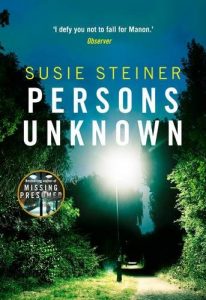
Helena’s timeslip account of then and now, when she is married with two daughters of her own, is highly effective. Knowing nothing but the life she was living with her parents, she never questioned what happened to her until one day her father took her on a day-long hike to a famous landmark, where she saw a normal family and began to realize what she was missing. In the present she has to deal with the fact that her father has escaped from prison, that her long-ignorant 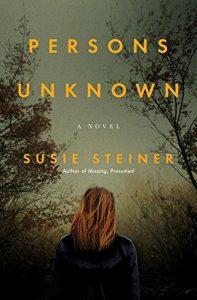 husband has now been told about her real identity and her past by the police, and that her two small daughters are at risk from her terrifying, violent and deranged father. She has to track him down.
husband has now been told about her real identity and her past by the police, and that her two small daughters are at risk from her terrifying, violent and deranged father. She has to track him down.
The chase on which Helena embarks is exciting, but it is her account of her childhood that makes this novel stand out. While obviously far more dramatic and terrible than anything 99.9% of her readers will have faced, this account will speak to anyone who has grown up in a dysfunctional household, rationally choosing to ally herself with the stronger parent and despise the weaker, only to understand much later, probably too much later, quite how the weaker parent suffered.
Dysfunctional parenting of a quite different kind is revealed in Delia Ephron’s Siracusa. Here two couples are holidaying together with the teenage daughter of one. To complicate all their lives, her father was once in a relationship with the other wife. The child suffers a psychological disorder of extreme shyness, which requires her mother to oversee her every moment, apparently to protect her against unbearable anxiety. Eventually someone is murdered. My own view is that the wrong victim suffers but Ephron effectively builds the tension against a well realized Sicilian holiday background.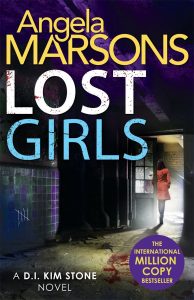
Susie Steiner starts one of the early chapters in Persons Unknown with a character thinking, ‘It’s good to have Manon back’, a sentiment I shared. Manon Bradshaw is one of the most appealing fictional police officers. Now pregnant, struggling to help her adopted 12-year-old son, Fly, her secretive sister and her toddler nephew, she is back in the fens after a short stint with the Met. With a determination to achieve a good work-life balance, she has elected to work in cold cases and can hardly bear to watch her erstwhile subordinate fumbling his way through a hot new murder case. But when members of her family come under suspicion she cannot resist joining in.
The crime is credible and the methods of detection convincing but it is in the private lives of her characters that Steiner really shines. Her take on family dynamics and the almost unbearably difficult balancing acts involved is both involving and illuminating. She writes well, too, and she has created a highly unusual – and heroic – character in obese shop-owner Birdie, who adores Tony Blair so much she keeps a poster of him on her wall. Birdie brings some lightening humour to the narrative and an important change in point of view. This is a warm and impressive novel.
Angela Marsons puts family life under vast pressure in Lost Girls, when two nine-year-old friends are abducted. Their parents are told by the kidnapper that whichever couple offers the highest price will get their daughter back while the other is killed. Fighting to save them both are DI Kim Stone and her team. Kim is an interesting woman, toughened by years in a children’s home and foster care, soothing her angst with death-defying motorbike rides and her passion for her dog. Well researched and effectively plotted, Lost Girls has some clever twists.
All these novels have powerful stories driven by well realized characters, who can carry the reader into all kinds of unfamiliar situations and keep them hooked.

